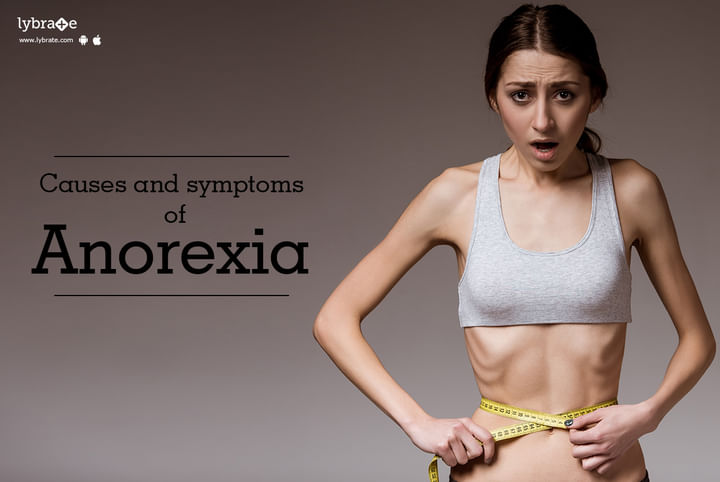Causes and Symptoms of Anorexia
Anorexia is a common eating disorder which is identified by abnormally low body weight, intense fear of gaining weight and a distorted perception of body weight. The problem is not only related to your dietary patterns but it also related to your mental state. People with this disorder are generally self-conscious, have a low self-esteem and are overly concerned about their external appearance.
Causes of anorexia
- Biological factors - These factors represent that anorexia can be congenital or it may have developed over time. Congenital means that disorder is hereditary in nature and is passed on from the parents to the offspring. On the other hand, it may develop in people who are more sensitive and have an inclination towards perfection.
- Psychological factors - Anorexia can also be caused due to certain specific personality traits and emotions that might be possessed by you. For instance, anorexia is more likely to happen to young women who are really worried and conscious out the way they look externally. Additionally, people who are either emotionally not too strong or suffer from anxiety issues can develop this disorder easily.
- Environmental factors - The type of a cultural set up you are living in also plays an important role in developing this disorder. For instance, the western culture is all about slim and fit people, whereas the oriental countries are not so bothered about the same.
Symptoms of Anorexia
Emotional symptoms - This category of symptoms includes behaviors and a thought process aimed towards losing weight and minimizing your food intake. Some of the symptoms belonging to this type include:
- Forceful vomiting to lose calories
- Staying hungry
- Excessive physical activity or exercise
- Denial of hunger
- Social withdrawal
- Irritability
- Depressed moods
Physical symptoms - These symptoms are self-explanatory and are clearly visible on the human body. These include:
- Extreme weight loss
- Thin appearance
- Abnormal blood count
- Fatigue
- Insomnia
- Dizziness or fainting
- Discoloration of the fingers
- Hair that thins, breaks or falls out
- Soft, downy hair covering the body
- Constipation
- Low blood pressure
'Consult'.
Related Tip: What risk factors are associated with anxiety disorders?



+1.svg)
